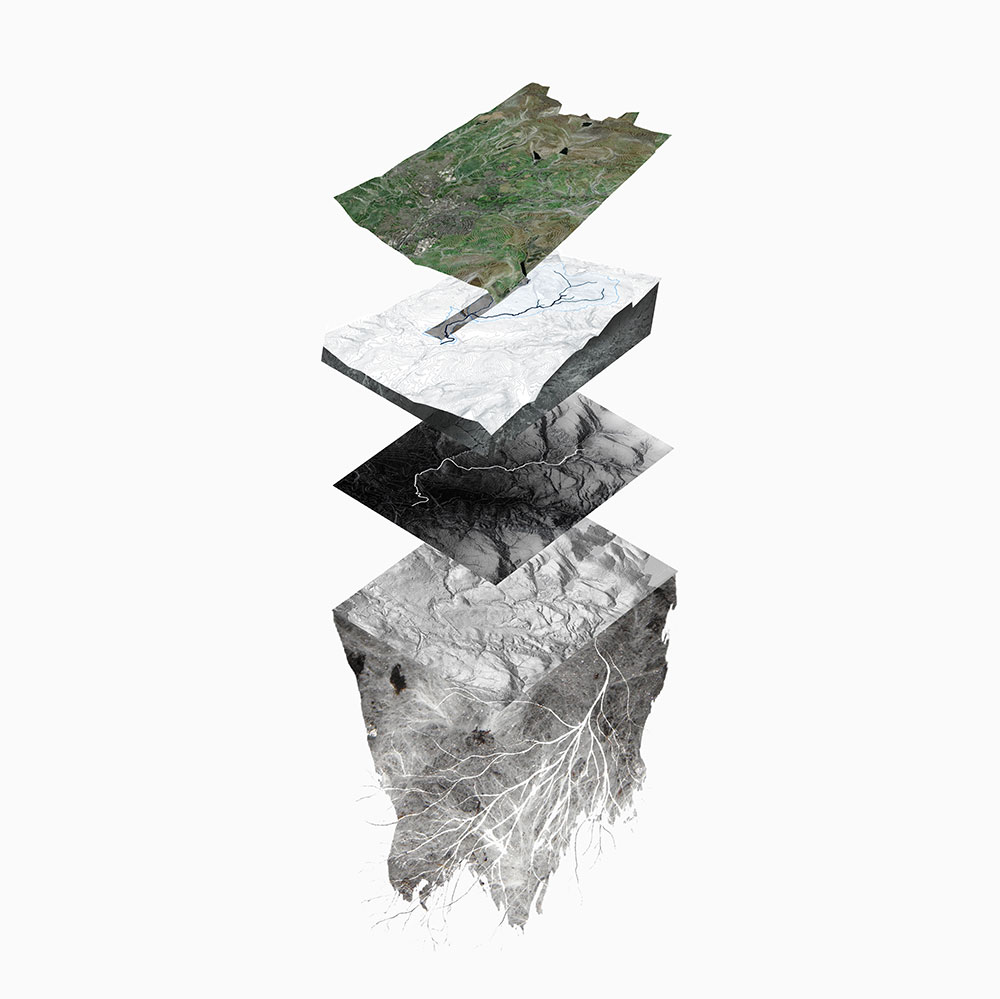MLA students worked in integrated groups with MArch1 to generate a critical analysis of Levelling Up plans for Burnley and an alternative vision for its future, focussed on marginalised actors. A series of derives, leading out from Burnley’s urban centre into its rural hinterland, helped to identify wider environmental processes manifested by the changing relationships of waterways and landscapes. This led to the articulation of individual manifestos, addressing themes of environmental and social injustice, which underpinned large scale strategic propositions for the area. These strategies were then explored and tested at progressively more detailed scales on selected sites, leading to proposals adopting a wide range of tactics, including:
- new socially and ecologically rich gathering spaces created through river daylighting and reappropriation;
- a Burnley ‘Garden Festival’ using phytoremediation to regenerate a canalside site and celebrate the textile history of the town;
- a community-led urban agriculture hub reappropriating a contaminated lost space;
- the reassertion of the marketplace as hub of the new social economy, within an urban forest;
- replacement of a superstore by a containerised, cooperative business hub within a new greenspace; and
- Reactivated streets and new skywalk linkages over the Straight Mile to reconnect Burnley’s peripheral communities to its heart.


